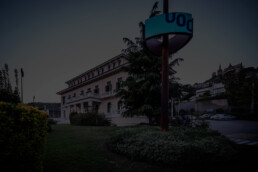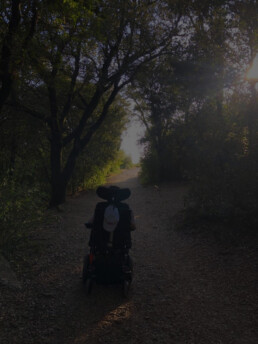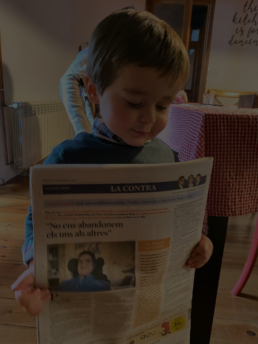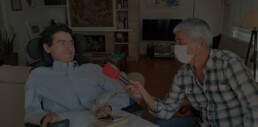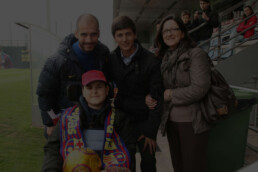Interview on Aceprensa
On this occasion, I want to share with you an interview conducted by the digital media Aceprensa, led by Luis Luque in December 2020. In this conversation, we explored my life experience, marked by a constant struggle against Duchenne muscular dystrophy, a serious genetic disease. With the support of my family and other fundamental pillars, I have learned to embrace life with positivity and overcome daily challenges. Through this interview, I aim to convey the importance of solidarity and the value of preserving life and dignity in the face of discussions about euthanasia that are debated in the current social context. It is my hope that this conversation can inspire reflection and understanding of the complexities surrounding this issue.
Interview Aceprensa - LUIS LUQUE, DECEMBER 21, 2020
"Euthanasia causes tremendous pressure for many patients"
Xavi Argemí is 25 years old, but he savors certain details of life as perhaps only older people do. He enjoys quiet conversation, the contemplation of the sunset, the presence of emotionally close people, even when nothing extraordinary is said...
He suffers from a serious illness: Duchenne muscular dystrophy, a genetic disorder that usually begins to manifest at a very early age, and its symptoms range from severe muscle weakness to spinal deformity, severely affecting lung capacity.
However, Xavi does not live immersed in sadness. He has written a book: Learning to Die to Live. Small things that make life wonderful (Rosa dels Vents, 2020), with which he wants to share his experience and help people in similar situations. The young man from Barcelona confesses to being "happy," and he is clear that those who, due to serious and incurable illnesses, face death head-on need companionship, not a push towards death.
Xavi has kindly answered a questionnaire sent by Aceprensa. He tells us that he was born in Sabadell and is the youngest of nine siblings. The degenerative disease "causes me to lose more and more strength: I went from walking when I was little to being in a wheelchair with very little mobility, but I can still move my hands a little. The most serious problem is pulmonary, which can be complicated by any bronchitis I catch. Currently, life expectancy is 30 years."
— A condition of this severity can make anyone lose the joy of living. What has happened in your case?
— I have been fortunate to always have my family by my side. The support of my parents and their upbringing has been fundamental. They educated me in strength and, at the same time, naturally as one more. Specifically, my mother has always made me consider the positive side of life: not thinking about what I can't do, but about the possibilities I still have, despite the limitations. In this sense, faith has helped me, valuing the small things we take for granted, and the support of friends and family.
— I know that, in addition to the book you have written, you are finishing a university degree...
— I am finishing a Multimedia degree at the UOC; I really like graphic design and look forward to starting to work. The idea for the book came because I thought that by explaining my life experience, I could help many people in similar situations. And now I see that I have helped many more people than I thought.
"The fundamental pillars of my life are family, friends, spiritual support, emotional, psychological, and medical; specifically, now, palliative care."
— The disease has not prevented you from taking these steps. How are you coping? What have been your main supports to move forward?
— There has been a process of many changes regarding the disease in recent years. Now I need help to carry out tasks; however, technology has advanced a lot, expanding my possibilities to do more things, even with many limitations.
The fundamental pillars of my life are family, friends, the spiritual support that encompasses this, the emotional, the psychological, and medicine; specifically now, palliative care.
— To what extent have these helped you?
— They have improved my quality of life. For example, the back operation in 2010 was very tough, but it straightened my spine. If it weren't for that, I probably wouldn't be alive because I was shrinking more and more, and there would have come a time when my lungs couldn't function properly.
— Have you ever experienced hopelessness, discouragement? How do you overcome them?
— Like everyone, I am human and have ups and downs. Every day I have to fight to get up again and think positively. I try to think about what I can do and what I can contribute to others. In my opinion, as we focus more on others, we become happier. I also believe that everything I do has a spiritual significance, that is, since I am a believer, I believe there is another life with full justice and happiness, and that Someone is by my side. Not everyone has faith, but we all have emotions that need to be learned to manage.
Taking life, cheaper than investigating
Xavi gives his testimony precisely in the days when the PSOE and Unidas Podemos are pushing full steam ahead, without considering the opinions of palliative care experts and ignoring the opinion of the Bioethics Committee of Spain, a bill regulating euthanasia for patients with incurable diseases. The Congress of Deputies approved it on December 17 by 188 votes in favor and 138 against, and if it passes the Senate, it must come into effect no later than April, although Vox threatens to file a constitutional appeal against the text.
But the voices from political opposition or specialized centers are not the only ones against it. Also, the voices of potential "beneficiaries" of a measure that, according to the government, responds to a "sustained demand of current society," even though there is no data to support it, are rising.
Jordi Sabaté Pons, 36 years old, suffering from amyotrophic lateral sclerosis (ALS), is certainly not one who has demanded anything. In fact, he, who tells El Mundo that he cannot speak, eat, or drink, and breathes with great effort, has reasons to be wary of the pending law.
"I'm afraid that now, after this law, there will be a lack of investment in research, that ALS and other diseases will continue without a solution, and that the culture of death will be encouraged." He is concerned that people in his condition will be "forced to die for lack of human and economic resources. That the health system, over time, will lose resources and efforts to cure us or guarantee us a dignified life." In his view, those patients who, more than a "dignified death," want to live a dignified life will be even more abandoned with the new law.
The solution is not to give seriously ill patients the option of euthanasia, "but to invest in ensuring they have a good quality of life."
Xavi also speaks about the nonchalant way in which the ruling parties are handling this matter, without truly putting themselves in the shoes of those affected and closing their eyes to solutions that would not hasten death.
— For some, especially in the political sphere, a "solution" to the discouragement experienced by patients with incurable diseases would be euthanasia. The idea is that recognizing this "right" would promote the autonomy of the patient. What do you think?
— I don't think so; on the contrary: I think it makes many patients feel like a burden to society and puts tremendous pressure on them.
What we, the patients, need is society's support, to alleviate our pain. We must protect the right to life because every life is dignified; everyone has problems, even if some have many limitations. The solution is not to give them that option but to invest in ensuring they have a good quality of life and discover the meaning of it.
— Why do you think a part of the population (including most political representatives) tends to see euthanasia as a kind of "lesser evil" compared to preserving the life of a seriously ill patient until their natural end?
— Because they have not delved into the consequences of this law, which can drag many people who have never considered ending their lives to consider it and end up deciding to die. I also think that, in general, we are in a selfish society that only thinks about its interests. And they haven't listened to the experts either.
— What would you say to those who, having never been in a condition like yours, believe it is time to have a "dignified death" law?
— Well, they should put themselves in the shoes of the sick and think about what can be done so that they can have a dignified life without resorting to death. The problem is more complex than they think. I believe that the best solution is palliative care, which provides support, alleviates pain, and helps give meaning to life.
"My God, one more day of lucidity, not just one more day of life”(2/2)
In the first part of this article, I addressed the famous phrase that my grandfather used to say, emphasizing the importance of lifelong learning, as we are in a constant process of learning. I also shared with you an interview conducted by La Farga School, where I spent my entire school years.
Now, in this second part of the article, I want to involve you in the interview that Ángeles Doñate of Open University of Catalonia (UOC) conducted with me in 2020. At this university I completed my Bachelor's degree in Multimedia between 2014 and 2021. In the book, I explain in detail how this experience was. For me, it was a valuable opportunity because, due to my health condition, studying remotely allowed me to adapt to my health needs at all times. Despite the distance, I was fortunate to have a tutor who cared deeply about my needs, and I dedicate this article to him as a token of gratitude.
One aspect that caught my attention was the UOC's continuous assessment system, which I find very interesting and useful. This system allows you to directly apply theory to practice. However, it must be acknowledged that there were times when academic demands were rigorous, with up to five assignments to submit simultaneously. I now invite you to read the full interview.
Xavi Argemí, Bachelor's Degree in Multimedia student and author of Aprendre a morir per poder viure
In the words of the writer Jose Luis Sampedro, "death is the companion of life. We begin to die the day we are born and we need to understand how to make the most of it." The quote would suggest that this humanist would have had much in common with Bachelor's Degree in Multimedia student, Xavi Argemí, who has just published his own book, entitled Aprendre a morir per poder viure [Learning to die to be able to live], in which he outlines his personal experiences and thoughts on the subject, infused with a sense of joy and hope. As a child, Xavi was diagnosed with Duchenne muscular dystrophy, a degenerative disease characterised by progressive muscle weakness. Now twenty-five, his movement is restricted to his fingers and head, which means he needs assistance to carry out the majority of his daily tasks and is confined to a wheelchair. As he explains in his book, which marks his debut as an author, death and his own mortality are everyday realities which he has learned to live with.
What made you decide to write this book and share your story?
It's something that some of my friends and family members have been saying I should do for a long time to tell people about the way I see life, but I've always been reticent because I don't want to be in the spotlight. The thing that convinced me was the thought that it might help people who find themselves in similar circumstances to mine. It all started with a letter I wrote to La Vanguardia expressing my support for palliative care in the debate about euthanasia. That led to me being interviewed for the TV3 programme, Planta Baixa, which, in turn, led to the Rosa dels Vents publishing house approaching me about writing the book.
Can you tell us about why you feel that life should be lived to the natural end?
Euthanasia is a treatment to bring about my death. And I want something else from medicine: to be treated because I'm dying. To put it another way, it's much better to invest in supporting people with what they're going through. Palliative care provides a much better response all round, both for me and for those close to me. It addresses the things people want: to feel adequately supported, to be free from pain, to allow nature to take its course and enjoy the life we still have. Euthanasia is not about political leanings, life and the right to live transcend that kind of discourse. To me, my objections to euthanasia as a solution are human, not political.
What are your own hopes for the future?
To enjoy the little things in every moment, to share projects with others, participate in everyone's joys and help ease their difficulties and sorrows.
Who did you write this book for? What did you want to convey to them?
I was thinking about people in situations similar to mine and the people close to them. And people encountering difficulties of any kind. I wanted to convey a message of hope and tell them that you can be happy despite any limitations or problems you may have and to learn to value the little everyday things that we often overlook.
What is a typical day in the life of Xavi Argemí like?
Apart from daily personal care routines, I try to be as active as possible and focus on things that I enjoy: studying and working to finish my Multimedia degree, chatting with friends and, now, answering emails and social media posts from people who have read the book, family, etc. All very routine and at the same time very different every day.
What makes you happy in life?
Being with the people I love, enjoying their projects and sharing mine. I had a very happy childhood thanks to the family I have.
What are the cornerstones of your life?
Family, friends, spiritual support and medicine.
Tell us a bit about your family
There are four of us at home now: my parents, one of my sisters and me. They are my lifeblood, I need them all the time, both day and night. On top of the physical aids I have, they support me in every way. In fact, they are my arms and my feet. Apart from that, everyone needs company and psychological and human support.
As a child, you were able to lead a life like that of any other child your age: playing football, running around, riding a bike, going to school, etc. I understand that your movement is now restricted to moving your mouse or typing on your mobile phone.
I was always aware of my physical limitations but the functional loss has been progressive. As my falls became more and more frequent at school and at home, I became aware of being different. Little by little, I stopped being able to do things that other kids my age did: playing ball, climbing stairs, and so on.
Have you ever felt angry or a sense of helplessness about your situation?
We all have difficult times, but I've always managed to keep going. Even now there are still times when I wish I could be cured.
You mentioned the importance of spiritual support... Why?
Christianity brings me hope and a sense of existence, the fundamental requirements for happiness.
What made you choose the UOC and decide on Multimedia as an area of study?
I couldn't attend a traditional on-site university because of my condition. The UOC has an excellent reputation so I thought it would be a good option. Why Multimedia? Because I wanted to do something in the digital world and because I was drawn to the world of graphic design, which one of my sisters introduced me to.
What has your experience as a student been like?
Very good, overall. Especially because of people like Antonio Ponce, who has been my tutor for the majority of the time I've been studying and because of how easy it is to communicate with my teachers and classmates.
If you look to the future, are you afraid, do you feel sad?
I don't feel sadness or fear but I do think about the difficult times that may come. But the fact that I've already been through some of it gives me some peace of mind. But death commands respect.
Problems and circumstances
One of the things that people who have read my book (Learning to Die in Order to Live) have pointed out to me is that the distinction between problems and circumstances that I make has been the most helpful thing for them. It is one of the most important things I have learned in my life.
As a person with a physical disability, I have had to face many circumstances that I could not change, such as my inability to walk. This situation forced me to learn to accept circumstances as they are and to focus on what I could change: my attitude and my way of seeing things.
However, I have also had to face many problems throughout my life, such as difficulties in accessing higher education or the job market. In these cases, I had to find ways to overcome them and find solutions that would allow me to achieve my goals.
In this sense, I believe that it is very important to learn to differentiate between circumstances and problems, as this allows us to focus our efforts on what we can really change and improve. In other words, if we face a circumstance that we cannot change, such as my disability, we must focus on accepting it and adapting to it. On the other hand, if we face a problem, we must find ways to overcome it and find solutions that allow us to achieve our goals.
For me, this has been a life lesson that has helped me to face difficult situations in life with a positive and proactive mentality. Not only has it helped me to overcome my own challenges and difficulties, but it has also allowed me to help other people do the same.
Believing in oneself and in one's own abilities is fundamental to achieving the goals we set for ourselves. It is important not to let life circumstances drag us down and prevent us from growing as individuals. Instead, we must see them as opportunities to learn, grow, and overcome ourselves.
In conclusion, I believe that the distinction between circumstances and problems is a fundamental skill for life, especially for those who, like me, live with disabilities or other difficult situations.
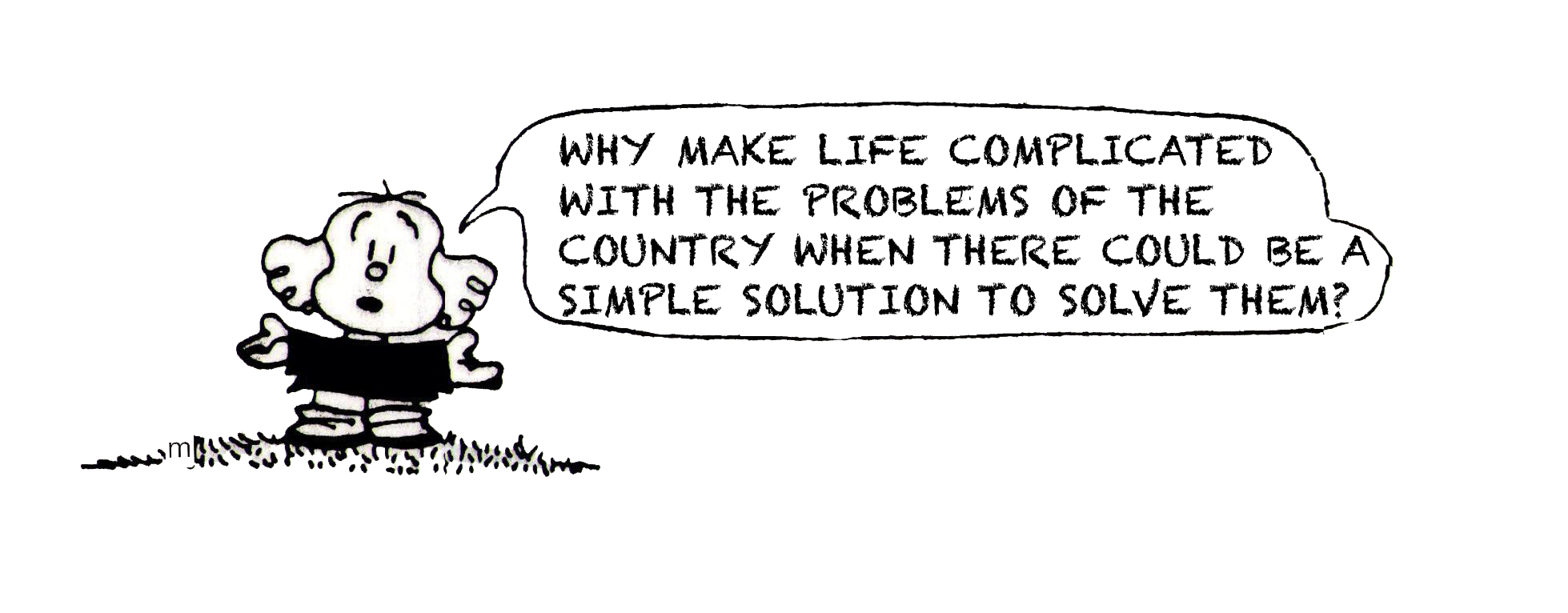
Interview at TOT Sant Cugat
One autumn afternoon, on November 19, 2020, Ramon Grau, a good friend of my uncle, president of the Association of Independent Media of Catalonia (AMIC) and director and journalist of the TOT mèdia group of which the local newspaper TOT Sant Cugat is a part, came to interview me on the occasion of the recent publication of my book. And why was a media outlet from Sant Cugat interested in interviewing me? Well, the interest comes from the fact that I am a former student of a school located in Mirasol, a municipality in the area: La Farga, where I spent my entire school years.
The interview was very pleasant, like a conversation between friends, but at the same time with great professionalism. Ramon came well prepared: a copy of my book underlined and full of notes, some sheets with questions, a blank notebook with a pen to jot down my answers, and a mobile phone with the recording app ready. With all this, he acquired all the material from which the interview and article emerged, which I share with you below. Thanks, Ramon! Conversations like this are part of the little things that make life wonderful.
Interview TOT Sant Cugat - Ramon Grau - November 19, 2020
Xavier Argemí, who suffers from Duchenne muscular dystrophy, has published the book 'Learning to Die in Order to Live'
Despite suffering from Duchenne muscular dystrophy, an incurable degenerative disease that makes him live in a wheelchair, Xavi Argemí (Sabadell 1995) is studying multimedia at the UOC. He was a student at La Farga school for twelve years and now publishes the book Learning to Die in Order to Live, a hymn to life by sharing the little things that make it wonderful. A book that is becoming a bestseller and helps us value what we have.
What would you say to young people like you, without your "circumstances" but with problems like being independent or finding a job?
We must value what we have, not what we can have. It is necessary to differentiate the problems that are the challenges that life puts before us and that we can or cannot solve, from the circumstances; which is what we have and cannot change. My problems are finishing my degree, working, my circumstances are the disease, not being able to move, eating with a feeding tube and depending on others. We overcome problems and do not dedicate our energies to circumstances that we cannot change.
In the book, you talk about euthanasia, which you have never considered, and you say that you want to "Live" in capital letters and make a firm defense of palliative care that has allowed you to build a meaningful life.
I do not want to suffer or make others suffer, medicine is very advanced and palliative care supports me and has helped me a lot, as well as my family. They support me and give me physical and mental well-being; enjoying a glass of water, a conversation, a Barça match, a sunset; the little big things in life.
You have been through surgery several times, until one day you said enough.
I started having crises and choking, I saw death near and before an intervention, tracheotomy, which meant not being able to speak, I decided not to do it and contacted a palliative care doctor to be able to stay at home with all the medical support and means that would give me the maximum possible well-being.
People say that you have never wanted to inspire pity, that you have sought normality in the eyes of others.
At home, I have always experienced it this way, my parents, my whole family, and friends have always made me feel normal, and that has given me hope and positivity to overcome the difficulties of day-to-day life. My parents have never hidden anything from me about the illness, but with a positive tone. Although we often talk about death, they have always made me see the kind side of life. We are a deeply Christian family, and faith helps me a lot.
Acceptance and sharing are the opposite of frustration. In the book, you make reflections that are more typical of someone who has lived a whole life than of a twenty-five-year-old.
Because the illness has accelerated in recent years, and I have had to face it, this has made me realize that happiness is knowing how to enjoy what we can do, without thinking about what we cannot. We must give thanks for what we have and what we can do, instead of complaining about what we do not have. When you accept your limitations, that's when you feel freer.
One of the great diseases of society is anxiety, depression, unhappiness...
I believe that happiness is also not focusing on yourself but on what you can do for others; sharing, celebrating their joys. We all have problems, and what is needed is to overcome them. My parents, educating me to die, have educated me to live fully. We must look at the positive side, especially focusing on others. To be happy, it is not necessary to travel to the other end of the world; we can enjoy the small things of day-to-day life. We must create a better society; we have seen this with the pandemic.
You often talk about Barça, Txarango, Manel. Does music help you a lot?
For my saint's day, my parents gave me tickets to see Manel at the Teatre Auditori de Sant Cugat, and I enjoyed it so much. Music is life, it is joy, refuge, and helps us to travel. My grandmother always said, "whoever sings scares away evil." Txarango one day made a video call to me, and so did Pep Guardiola, they are great gifts! Like nature, animals keep me company.
You are from Sabadell, their parents from Sabadell and Terrassa, and you studied in Sant Cugat and live in Matadepera, with spectacular views of the Vallès.
Yes, I have taken a photograph every day of the year of the sunset over the Vallès, always from the same place and at the same time. Three hundred and sixty-five photographs, the images are like life, which has many colors and shades, some days are gray, some bright.
Your grandfather always said: "My God, one more day of understanding than of life."
Yes, being able to reach the end with full lucidity and well-being. I am receiving many messages from people who thank me for the book, people who have lost a child, elderly people, teachers... They tell me that when they have a bad day, it is worth reading it. Just helping one person, I will feel satisfied.
Well, in a few days, it has already had three editions; it is an inspiration for many, especially for young people. It appears on the bestseller list alongside President Puigdemont, who, by the way, tweeted: "Today I finished reading it, but I will meditate on it for a lifetime." Many of us will, and we thank you from the bottom of our hearts.
Source: https://www.totsantcugat.cat/actualitat/societat/xavi
"Let's not abandon each other"
This is the phrase that stood out to Ima Sanchis from the interview she did with me for La Contra, the back page of La Vanguardia, a Catalan newspaper. I was very excited about the interview she did with me, because when I turned 18, my siblings made a fake Contra for me, and since then I had dreamed of having a real one. Well, the opportunity presented itself: Ima was very pleasant and we had a conversation as if we had known each other forever, talking beyond the book, about life, how I see it, and what I think is important to improve the world and solve the problems that exist in today's society.
Definitly, we had to have the conversation via Zoom for various circumstances. Something I didn't know is that she created La Contra and started it more than 20 years ago. This impressed me even more, since I think (and I'm sure many of you will agree) that it is one of the best interview styles created within journalism in the last 20 years: it is a plural space where all kinds of people with different points of view are given a voice to see things, and I think this is very enriching. I am very grateful to her for her kindness, and curiously enough, she likes dogs like me: I told her about Bruna and she told me about hers, Oliva. This is one of the little things that I consider make life wonderful, as I say in the book. Below, I share the complete interview with La Contra.
Font: La Contra, La Vanguardia, Ima Sanchis. 29/12/2020
"Let's not abandon each other"
I am 25 years old. I was born in Sabadell and live in Matadepera with my parents and one of my nine siblings. I studied Multimedia at UOC, I still need to complete my final project. Politicians must seek the common good, and that means fighting to save the planet. I believe in God and in life.
Xavi Argemí, with an incurable disease. Publishes ‘Aprendre a morir per poder viure’ (Learning to die to be able to live)
"Let's not abandon each other"
IMA SANCHÍS
Xavi's hope
Years are not on his side. Today, the atrophy of his muscles only allows him to move the fingers of his hand. He has an incurable degenerative disease, but Xavi also has many other things: an extensive family, friends, music, humor, his dog Bruna, a brave attitude and palliative care that helps him cope with the disease. "I have learned to live with death in sight. Or what is the same: I have been learning to die in order to live. And, paradoxically, my life is not a miserable life." He tells it in Aprendre a morir per poder viure (Rosa dels Vents). "I have the hope of taking advantage of the minutes, days, or years that I have left, of making life easier for those who are by my side, and, through the book, to as many people as I can."
"I can move my hands and head a little, although I can't hold it, and I need help with everything, even drinking water.
Was he born with an incurable degenerative disease?
I was diagnosed with Duchenne muscular dystrophy at the age of three, since then I have been losing muscle capacity. I know it is progressive. I know what it implies for it to be so. I know how everything will progress.
...
Don't worry, I have four pillars: family, friends, spiritual support, and medicine. Palliative care is my salvation.
His father is a pediatrician, his mother a nurse.
They taught me to live day by day, and by learning to die, I have learned to live. And it turns out that my life is not a miserable life. I have had many respiratory crises in which I thought I was going to die, but here I am, and I feel happy.
A survivor.
You learn, you have to accept that the end will come any day, but it will come to all of us, you have to keep that in mind but not obsess over it.
Do you achieve it?
I have my ups and downs, but I value what I have and what I can still do, like chatting with you, studying, enjoying a movie, music, fire... My list is endless. Daily life is full of small gifts.
We should all be more grateful.
I assure you that you can find happiness in a simple life.
Perhaps more than anywhere else.
My body has been atrophying, but my spirit has been gaining flexibility and acceptance. Perhaps the hardest thing has been distinguishing what the circumstances are from what the problems are.
What is the difference?
The disease is my circumstance. I don't like it, but I have to accept it to be able to see the good things around me. Studying has meant for me many problems of mobility, tiredness, capacity, a challenge that requires not resigning. I can face the problems, I must learn to carry the circumstances
What comforts you on a bad day?
Bruna, my dog, a German Shepherd who keeps me company and gives me a lot of love. And I have great views, I never miss a sunset. For a year, I took a photo of the sunset from the same angle every day.
And now, when I see all 365 photos of sunsets together, what do I think?
That there are days of all colors: gray days, sunny days, red days, blue days, rainy days, it's like life. It is life.
What are you up to now?
I have three baby chicks that I have given to my godson. They are in my house, and I have photographed them every day as they grow. It's an incredible transformation! My father takes the photos, and I direct, haha.
What has been the most difficult adaptation?
Stopping eating and having to feed myself through a tube. In my house, everything revolves around the table. But I can have a glass of sangria from time to time. You have to look at the positive side of life, don't you think?
That's very easy to say and very difficult to carry out.
It's a daily struggle. You have to build with what you have, and I am very lucky, surrounded by family and friends who love and accept me. They have also had to face my illness.
And how have your friends done?
Very naturally. They have never pitied me, they tease me just like they do with each other. Sometimes they put things on top of me as if I were a Christmas tree. I laugh a lot with them.
You have a good character.
Accepting your situation allows you to accept the help and love of others. And if you take your difficulties with joy, it also makes it easier for them. Accepting help from others is important, but not just for yourself.
Tell me more.
Doing something good for others forces you to go beyond yourself, and I think that's very good for society. A society of people who need and help each other is a better society.
We all need help.
Especially as we age. Let's not abandon each other. I think happiness is as simple as not focusing on oneself but on others. My life also has meaning.
What are your fears?
The unexpected, but I have hope that everything will turn out well.
Is that possible?
Expectations in a degenerative disease are always bad, but my parents were told I wouldn't reach adolescence, and here I am, because medicine is advancing, so it's better to live day by day.
I see.
Palliative care provides me with the necessary medication so that I do not suffer, and they accompany me psychologically, emotionally, and spiritually.
Have you ever considered euthanasia?
Never. If people had the care they needed, they might not want to die.
"El Convidat" at home
In October, I had a visit that made me very happy. For those who don't know, El Convidat ("The Guest" in English) is an interview program on TV3, the main TV channel in Catalonia, where the host - a Catalan journalist, Albert Om - is invited to spend a weekend at the home of a famous personality in Catalonia.
This time, El Convidat, Albert Om, came to my house, although not to spend the weekend. Obviously not, hahaha. The reason for the visit was to interview me for the program Islàndia, where Albert Om dedicates himself to getting to know stories of all kinds of people.
His interest in interviewing me was because my book had just been published. His personal treatment was very friendly and close, but he acted with great professionalism during the interview. I say this because in a job it is important to separate the personal from the professional.
Once the microphones were on, Albert, with some parts of the book underlined, began to ask questions in his style. I value this way of conducting the interview a lot because it says a lot about a professional.
In addition, the questions were direct and with a great interest in knowing more in-depth about my story and asking why I see things the way I do. He also stopped frequently to let me drink water or rest if needed.
In short, the result of the interview was very good, so much so that for me it is the best interview I have ever had. Once the interview was over, we chatted with him, my parents, and some of my siblings who also liked El Convidat (The Guest) from TV3 and Islàndia from RAC1.
Next, I share the full interview with you. It's in Catalan, but below you can see a small summary.
Updated on 16-11-2020 19:50
Islàndia
"I'm happy, I don't want euthanasia"
Xavi Argemí has Duchenne muscular dystrophy, a terminal degenerative disease.
Xavi Argemí is 25 years old, from Sabadell, studies multimedia at UOC and hasn't left his house since last summer because he has an incurable degenerative disease, Duchenne muscular dystrophy, which makes any cold he catches very complicated. What he wants is to enjoy the time he has left, and to do so he has these pillars: family, friends, spiritual support, medicine, and palliative care.
"Drinking a glass of water, for me, is already a lot." "I don't think about how much time I have left." "Pau Donés gave a very good example and he wasn't a believer."
Xavi has just published a book, with Rosa dels Vents, called Learning to Die to be Able to Live, which is exactly what he has had to do: learn to die to be able to live.
He, who has death so close, wants to explain how he sees life. He doesn't want euthanasia, he wants to live until the last second he can. He believes that people who are about to die need company and not help to end their lives. It is a different perspective, which is worth listening to and respecting, even if it is different from that of many people.
"I'm happy, I don't want euthanasia." "Euthanasia makes us sick people feel like a burden to society." "I imagine heaven as the ultimate happiness."
Albert Om went to meet him in Matadepera. Listen to the conversation they had on Islàndia.
Strength and courage
In the book I explain an anecdote I keep about Pep Guardiola when I was recovering from the back surgery in 2010. One day he called me and to cheer me up he said some words that make me think of the best era in Barça history: "Strength and courage." One day he called me to cheer me up and said some words that make me think of the best era in Barça history: "Strength and courage."
In the summer of 2008 it was a time of change at Can Barça after a blank season that culminated the end of the Rijkaard era and then Joan Laporta, Barça's president, bet on Pep Guardiola who had just trained Barça B in the third division. They did not spare criticism for the lack of experience as a coach to train a top-level team like Barça. The project led by Guardiola would take down heavyweights like Ronaldinho or Deco, would bet on young people from the academy like Busquets or Piqué (recovered from United) and naturally signings that would bring fresh air to the team like Dani Alves. Who would have thought that with this team Barça would make history and become the best team in the world winning all possible titles.
And Guardiola's style not only made them win but also offered a beautiful game to watch for the spectator with the famous "Tikitaka". I'm sure many people enjoyed it even if they weren't culé. All this success is not explained without the way of working, based on effort, teamwork, and constant struggle. To summarize all this spirit, there is an Estrella Damm ad from 2009, which I share with you below, which explains very well what made Barça the center of the world.
This Barça was an example of values beyond the world of football, for me it is a whole inspiration in my constant struggle to overcome the problems and circumstances that a disease like Duchenne entails. So strength and courage to all those who are going through difficult moments or circumstances. You can see where to buy my book on this same blog.
Next, I share a video with images from this unforgettable era and the Estrella Damm ad that I mentioned.
https://youtu.be/FToc8DVY1rU
https://youtu.be/oaczosE4NkU

